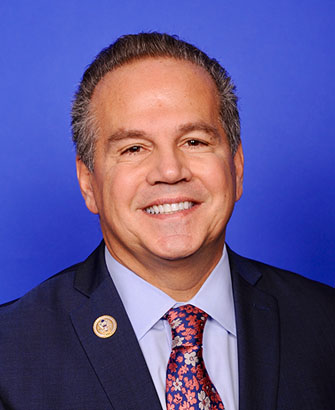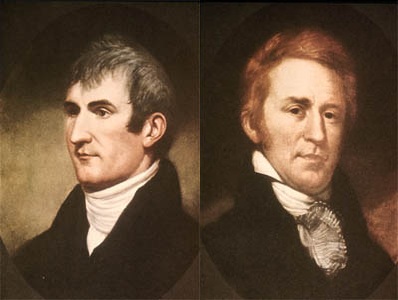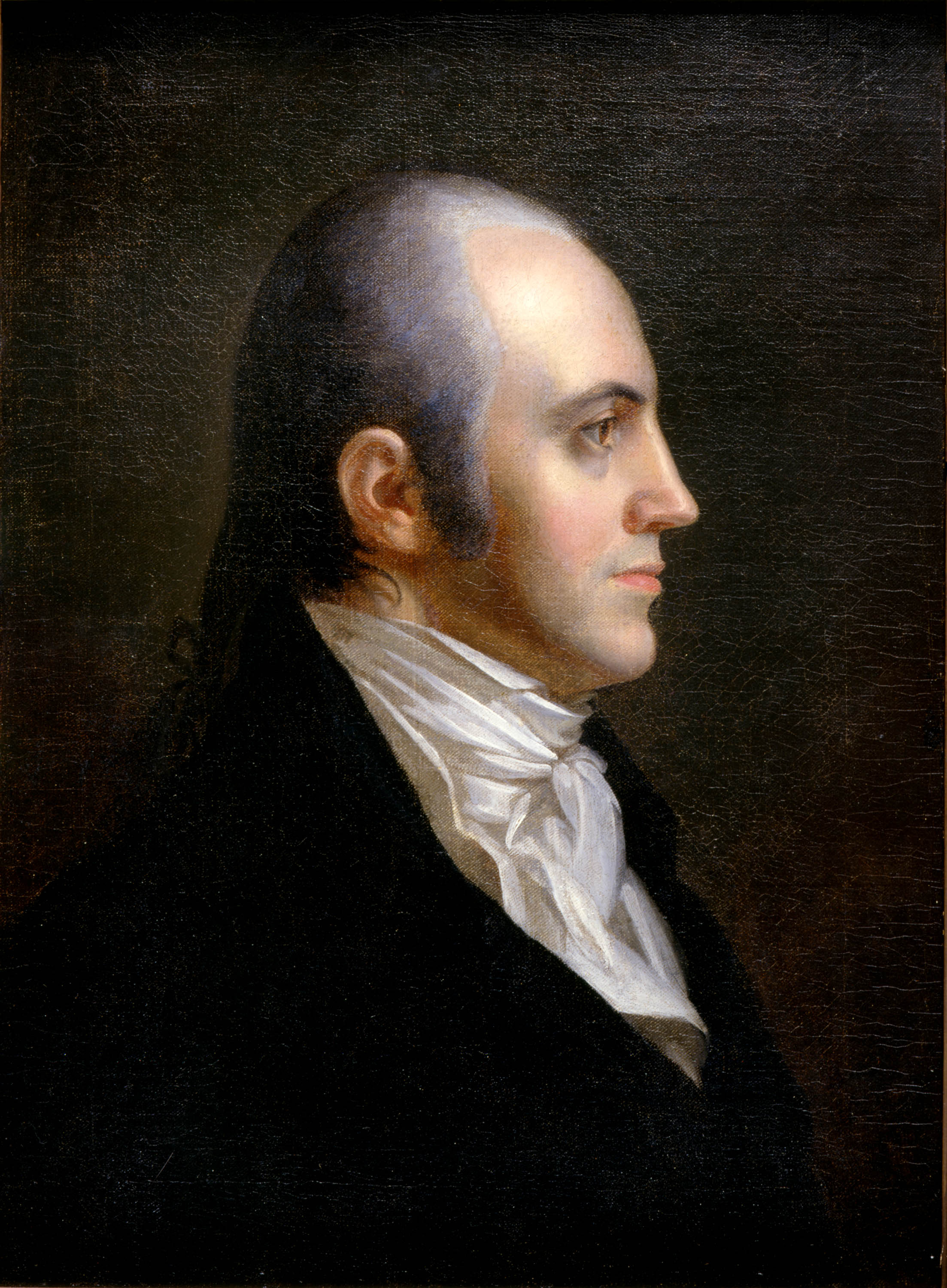|
United States Congressional Delegations From Rhode Island
These are tables of congressional delegations from Rhode Island to the United States Senate and United States House of Representatives. The current dean of the Rhode Island delegation is Senator Jack Reed, having served in the Senate since 1997 and in Congress since 1991. United States Senate U.S. House of Representatives Current representatives 1790 - 1843: At-large seat(s) When Rhode Island ratified the Constitution in 1790, it had one seat. After the first census, it had two seats, chosen at-large on a general ticket. 1843 - present In 1843 the at-large seat was eliminated. Since then, Representatives have been chosen from separate districts. Key See also * List of United States congressional districts * Rhode Island's congressional districts * Political party strength in Rhode Island Notes References * * Congressional Biographical Directory of the United States 1774–presentInformation from the Clerk of the U.S. House of Representatives {{U. ... [...More Info...] [...Related Items...] OR: [Wikipedia] [Google] [Baidu] |
United States Congress
The United States Congress is the legislature of the federal government of the United States. It is bicameral, composed of a lower body, the House of Representatives, and an upper body, the Senate. It meets in the U.S. Capitol in Washington, D.C. Senators and representatives are chosen through direct election, though vacancies in the Senate may be filled by a governor's appointment. Congress has 535 voting members: 100 senators and 435 representatives. The U.S. vice president has a vote in the Senate only when senators are evenly divided. The House of Representatives has six non-voting members. The sitting of a Congress is for a two-year term, at present, beginning every other January. Elections are held every even-numbered year on Election Day. The members of the House of Representatives are elected for the two-year term of a Congress. The Reapportionment Act of 1929 establishes that there be 435 representatives and the Uniform Congressional Redistricting Act requires ... [...More Info...] [...Related Items...] OR: [Wikipedia] [Google] [Baidu] |
3rd United States Congress
The 3rd United States Congress was a meeting of the legislative branch of the United States federal government, consisting of the United States Senate and the United States House of Representatives. It met at Congress Hall in Philadelphia, Pennsylvania from March 4, 1793, to March 4, 1795, during the fifth and sixth years of George Washington's presidency. The apportionment of seats in the House of Representatives was governed by the Apportionment Act of 1792 and based on the 1790 Census. The Senate had a Pro-Administration majority, and the House had an Anti-Administration majority. Major events * March 4, 1793: President George Washington begins his second term. * April 22, 1793: George Washington signed the Neutrality Proclamation * February 11, 1794: Wishing to avoid charges of being a Star Chamber, the Senate holds its first public session, resolving "That the Senate doors be opened". * March 14, 1794: Eli Whitney was granted a patent for the cotton gin * March 27, ... [...More Info...] [...Related Items...] OR: [Wikipedia] [Google] [Baidu] |
10th United States Congress
The 10th United States Congress was a meeting of the legislative branch of the United States federal government, consisting of the Senate and the House of Representatives. It met in Washington, D.C. from March 4, 1807, to March 4, 1809, during the seventh and eighth years of Thomas Jefferson's presidency. The apportionment of seats in the House of Representatives was based on the 1800 census; both chambers had an overwhelming Democratic-Republican majority. Major events *May 22, 1807: Former Vice President of the United States Aaron Burr was indicted for treason. He was acquitted September 1, 1807 * June 1807: Chesapeake-Leopard Affair: The British warship captured and boarded the . * August 17, 1807: The '' Clermont'', Robert Fulton's first American steamboat, left New York City for Albany, New York, on the Hudson River, inaugurating the first commercial steamboat service in the world. *January 1, 1808: The importation of slaves into the United States was banned Maj ... [...More Info...] [...Related Items...] OR: [Wikipedia] [Google] [Baidu] |
James Fenner
James Fenner (January 22, 1771April 17, 1846) was an American politician who served as a United States Senator as well as the 7th, 11th and 17th Governor of Rhode Island (on three occasions). He was the son of Arthur Fenner, the fourth governor of Rhode Island. Biography Fenner was born in Providence in the Colony of Rhode Island and Providence Plantations. He graduated from Brown University in 1789, and was married to Sarah Whipple Jenckes (his first cousin, once removed) on November 17, 1792. He served as United States senator from 1805 to 1807, then gave up his senatorship to become Governor of Rhode Island, two years after his father died in office. Fenner served as governor from 1807 to 1811, from 1824 to 1831, and from 1843 to 1845. Fenner was elected to his first two terms as a Democratic-Republican and as his third term as a member of the Law and Order Party of Rhode Island The Law and Order Party of Rhode Island was a short-lived political party in the U.S. state ... [...More Info...] [...Related Items...] OR: [Wikipedia] [Google] [Baidu] |
9th United States Congress
The 9th United States Congress was a meeting of the legislative branch of the United States federal government, consisting of the United States Senate and the United States House of Representatives. It met in Washington, D.C. from March 4, 1805, to March 4, 1807, during the fifth and sixth years of Thomas Jefferson's presidency. The apportionment of seats in the House of Representatives was based on the Second Census of the United States in 1800. Both chambers had a Democratic-Republican majority. Major events * March 4, 1805: President Thomas Jefferson begins his second term. * June 1, 1805: First Barbary War ends. * November 7, 1805: Lewis and Clark Expedition arrived at the Pacific Ocean. * September 23, 1806: Lewis and Clark Expedition returned to St. Louis, Missouri, thereby ending the exploration of the Louisiana Territory and the Pacific Northwest. * February 19, 1807: Former Vice President Aaron Burr was tried for conspiracy and acquitted. Major legislation * Marc ... [...More Info...] [...Related Items...] OR: [Wikipedia] [Google] [Baidu] |
Benjamin Howland
Benjamin Howland (July 27, 1755May 1, 1821) was a United States senator from Rhode Island. Born in Tiverton, he attended the common schools, engaged in agricultural pursuits, was collector of taxes in 1801, town auditor in 1802, and town moderator in 1805. He was a member of the Rhode Island House of Representatives in 1810 and a general in the State militia during the War of 1812. Howland was elected as a Democratic-Republican The Democratic-Republican Party, known at the time as the Republican Party and also referred to as the Jeffersonian Republican Party among other names, was an American political party founded by Thomas Jefferson and James Madison in the early ... to the U.S. Senate to fill the vacancy caused by the death of Samuel J. Potter and served from October 29, 1804, until March 3, 1809. He died in Tiverton in 1821; interment was in the family lot on his estate. References {{DEFAULTSORT:Howland, Benjamin 1755 births 1821 deaths People from Ti ... [...More Info...] [...Related Items...] OR: [Wikipedia] [Google] [Baidu] |
8th United States Congress
The 8th United States Congress was a meeting of the legislative branch of the United States federal government, consisting of the United States Senate and the United States House of Representatives. It met in Washington, D.C. from March 4, 1803, to March 4, 1805, during the last two years of the first Presidency of Thomas Jefferson, presidency of President of the United States, U.S. President Thomas Jefferson. The apportionment of seats in the United States House of Representatives, House of Representatives was based on the United States Census, 1800, Second Census of the United States in 1800. Both chambers had a Democratic-Republican Party (United States), Democratic-Republican majority. Major events * April 30, 1803: Louisiana Purchase was made by the United States from France * February 16, 1804: In the First Barbary War, Stephen Decatur led a raid to burn the pirate-held USS Philadelphia (1799), frigate ''Philadelphia'' * May 14, 1804: Lewis and Clark Expedition departed ... [...More Info...] [...Related Items...] OR: [Wikipedia] [Google] [Baidu] |
Samuel J
Samuel ''Šəmūʾēl'', Tiberian: ''Šămūʾēl''; ar, شموئيل or صموئيل '; el, Σαμουήλ ''Samouḗl''; la, Samūēl is a figure who, in the narratives of the Hebrew Bible, plays a key role in the transition from the biblical judges to the United Kingdom of Israel under Saul, and again in the monarchy's transition from Saul to David. He is venerated as a prophet in Judaism, Christianity, and Islam. In addition to his role in the Hebrew scriptures, Samuel is mentioned in Jewish rabbinical literature, in the Christian New Testament, and in the second chapter of the Quran (although Islamic texts do not mention him by name). He is also treated in the fifth through seventh books of '' Antiquities of the Jews'', written by the Jewish scholar Josephus in the first century. He is first called "the Seer" in 1 Samuel 9:9. Biblical account Family Samuel's mother was Hannah and his father was Elkanah. Elkanah lived at Ramathaim in the district of Zuph. His geneal ... [...More Info...] [...Related Items...] OR: [Wikipedia] [Google] [Baidu] |
Christopher Ellery
Christopher Ellery (November 1, 1768December 2, 1840) was a United States senator from Rhode Island. Born in Newport, he graduated from Yale College in 1787, studied law, was admitted to the bar and commenced practice in Newport. He was clerk of the superior court of Newport County from 1794 to 1798. Early life and family Christopher Ellery was a nephew of William Ellery, a Continental Congressman from Rhode Island. In 1784, his daughter, Betsy, married Samuel Vernon. Slave voyage In 1788, Ellery financed a slave voyage aboard the brig ''Washington'' with Constant Tabor and prominent Newport slave trader Samuel Vernon, his son in law. The captain, William Gardner, purchased 200 enslaved Africans from the Gold Coast and then sailed to Martinique where he sold 165 people. Thus, 35 may have died on the voyage through the Middle Passage. Election history Ellery was elected as a Democratic-Republican to the U.S. Senate to fill the vacancy caused by the resignation ... [...More Info...] [...Related Items...] OR: [Wikipedia] [Google] [Baidu] |
7th United States Congress
The 7th United States Congress was a meeting of the legislative branch of the United States federal government, consisting of the United States Senate and the United States House of Representatives. It met in Washington, D.C. from March 4, 1801, to March 4, 1803, during the first two years of Thomas Jefferson's presidency. The apportionment of seats in the House of Representatives was based on the First Census of the United States in 1790. Both chambers had a Democratic-Republican majority, except during the Special session of the Senate, when there was a Federalist majority in the Senate. Major events * March 4, 1801: Thomas Jefferson became President of the United States. * May 10, 1801: The pascha of Tripoli declared war on United States by having the flagpole on the consulate chopped down * March 16, 1802: West Point established * February 24, 1803: First time an Act of Congress was declared unconstitutional: U.S. Supreme Court case, ''Marbury v. Madison'' Major legislati ... [...More Info...] [...Related Items...] OR: [Wikipedia] [Google] [Baidu] |
6th United States Congress
The 6th United States Congress was a meeting of the legislative branch of the United States federal government, consisting of the Senate and the House of Representatives. It met at Congress Hall in Philadelphia, Pennsylvania and in Washington, D.C. from March 4, 1799, to March 4, 1801, during the last two years of John Adams's presidency. It was the last Congress of the 18th century and the first to convene in the 19th. The apportionment of seats in House of Representatives was based on the First Census of the United States in 1790. Both chambers had a Federalist majority. This was the last Congress in which the Federalist Party controlled the presidency or either chamber of Congress. Major events * December 14, 1799: Former President George Washington died * February 24, 1800: Library of Congress founded * November 17, 1800: Congress held its first session in Washington, D.C. * January 20, 1801: John Marshall was appointed Chief Justice of the United States * February 17, ... [...More Info...] [...Related Items...] OR: [Wikipedia] [Google] [Baidu] |
Ray Greene (politician)
Ray Greene (February 2, 1765January 11, 1849) was a United States senator and Attorney General from Rhode Island during the early days of statehood. Life Born in Warwick, Rhode Island, Greene was a son of William Greene Jr. and Catharine Ray. His father was a governor of Rhode Island during the American Revolutionary War, and his mother was a correspondent of Benjamin Franklin. Greene pursued classical studies and graduated from Yale College in 1784, then studied law, was admitted to the bar, and commenced practice in Providence. He was attorney general of Rhode Island from 1794 to 1797, and in the latter year was elected as a Federalist to the United States Senate to fill the vacancy caused by the resignation of William Bradford. Greene was reelected in 1799 and in total served from November 13, 1797, to March 5, 1801, when he resigned, having been nominated for a judicial position. He was designated a district judge of Rhode Island by President John Adams, but, through a te ... [...More Info...] [...Related Items...] OR: [Wikipedia] [Google] [Baidu] |






